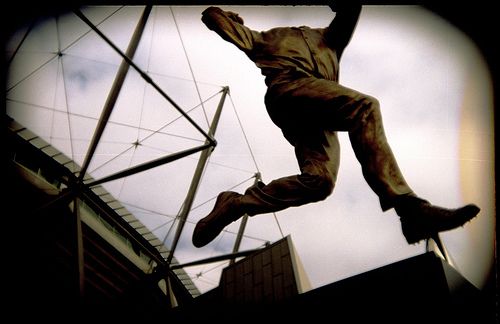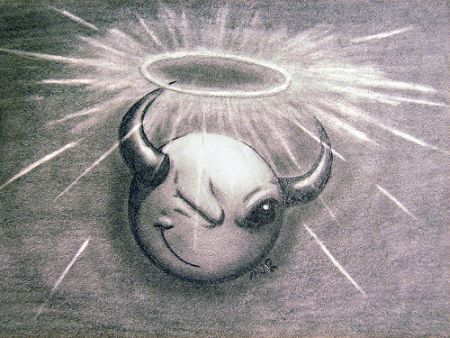
The first few times I heard about God, I was already suspicious. My earliest clear memory of it was when I was five, leaning against the screen door of our small town home with my older sister, watching a midsummer thunderstorm unfold.
We were in awe, like I have been at every thunderstorm since. I don’t remember if I asked, but my sister said it was God who made the lightning and thunder. Not that she was ever religious, that’s just what her eight-year old mind told me that day. I took note.
At that point, nearly all of my ideas about God had come from Family Circus comics. The kids each prayed every night before bed, depicted casually as if it’s something every normal person does. In one comic, Dolly prays for her father to make it home safely from his trip to New York. The opposite panel shows a rainy street scene in which a six-foot translucent hand stops her Dad from stepping in front of a speeding taxi.
Seriously?
Later on, in my teenage years, I would recognize the Family Circus to be a conservative, unapologetically fundamentalist cartoon, but at the time I wasn’t aware of the play of politics in the things I read and watched. I just knew that the God they depicted didn’t make a whole lot of sense. This was the idea of God I had, and I rejected it, because it made sense to do so.
Sometime in junior high, when I was becoming more politically aware, I remember being shocked one day when I realized that ordinary adults — too old for the likes of the Family Circus — actually still believed in this God thing. Not just the crazies on televangelist shows either, but real, respectable adults who could be found in church on any given Sunday, singing hymns while looking upward with their eyes closed, really believing that they were in contact with this big translucent man, presumably when he’s not busy casting lightning bolts over my hometown, or saving Bil Keane from the natural consequences of wandering into traffic without looking both ways. Read More




 I'm David, and Raptitude is a blog about getting better at being human -- things we can do to improve our lives today.
I'm David, and Raptitude is a blog about getting better at being human -- things we can do to improve our lives today.
It all pretty the opposite if you're not in the US :) Since 2022 I've changed 3 countries and I'm planning to emigrate to the fourth one. I've had so much novelty and so many things to adapt to. However, time had never run so fast for me as in 2022...